Environ 5 résultats pour « Héliogabale »
-
_-_Musei_capitolini_-_Foto_Giovanni_Dall'Orto_-_15-08-2000_.jpg/200px-Elagabalo_(203_o_204-222_d.C)_-_Musei_capitolini_-_Foto_Giovanni_Dall'Orto_-_15-08-2000_.jpg)
Héliogabale
Héliogabale ou Élagabal (Varius Avitus Bassianus) est empereur romain de 218 à 222 sous le nom de Marcus Aurelius Antoninus. Il nait, vers 203, à Émèse, en Syrie. C'est le fils de Julia Soemias et de Varius Marcellus. Par sa mère, il est l'arrière-petit-fils de Julius Bassianus d'Émèse, le petit-neveu par alliance de l'empereur Septime Sévère, qui avait épousé sa grand-tante Julia Domna en secondes noces, et le neveu de Caracalla. Les femmes, qu'on appelait « les princesses syriennes », sont indissociables du destin d'Héliogabale.
-
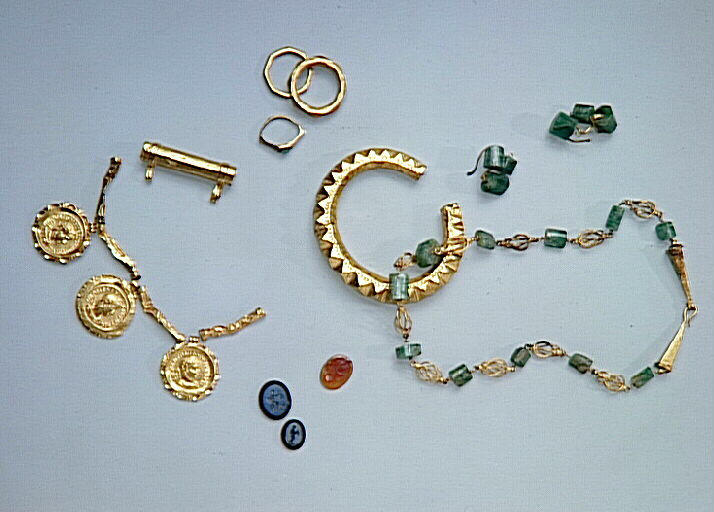
-
- Domaine(s) :
- Archéologie
- Orfèvrerie
- Rome antique
-
- Désignation :
- aureus
-
- Sujet représenté :
- Empereur romain
- Héliogabale
- Portrait
-
-
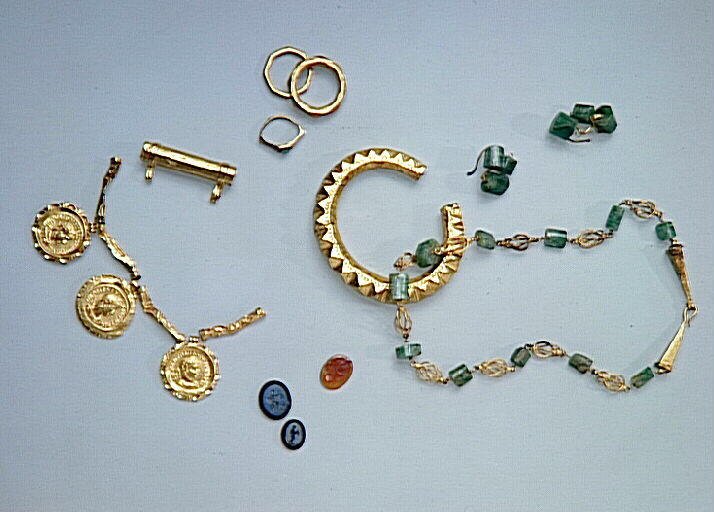
-
- Domaine(s) :
- Archéologie
- Numismatique
- Orfèvrerie
- Rome antique
-
- Désignation :
- aureus
-
- Sujet représenté :
- Empereur romain
- Héliogabale
- Portrait
-
-
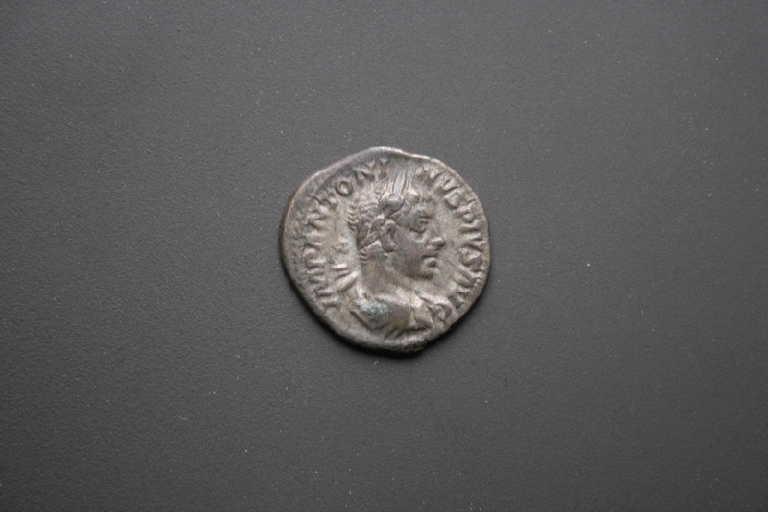
-
- Domaine(s) :
- Archéologie
- Gallo-romains
- Numismatique
-
- Désignation :
- denier
-
- Sujet représenté :
- Allégorie
- Fouet (arme)
- Gloire (ornement)
- Héliogabale
- Manteau (vêtement)
- Nudité
-
- Datation :
- IIIe siècle
-
-
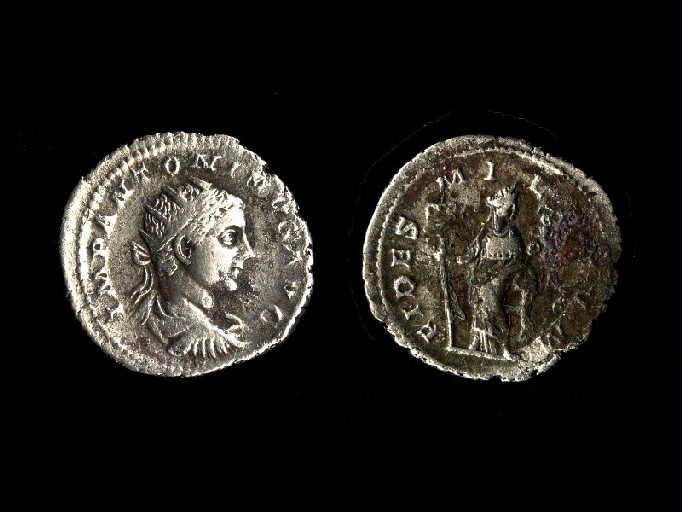
-
- Domaine(s) :
- Archéologie
- Numismatique
-
- Désignation :
- antoninien
-
- Sujet représenté :
- Allégorie
- Couronne (attribut)
- Enseigne
- Héliogabale
- Portrait
-
- Datation :
- IIIe siècle
- Empire romain
-
-
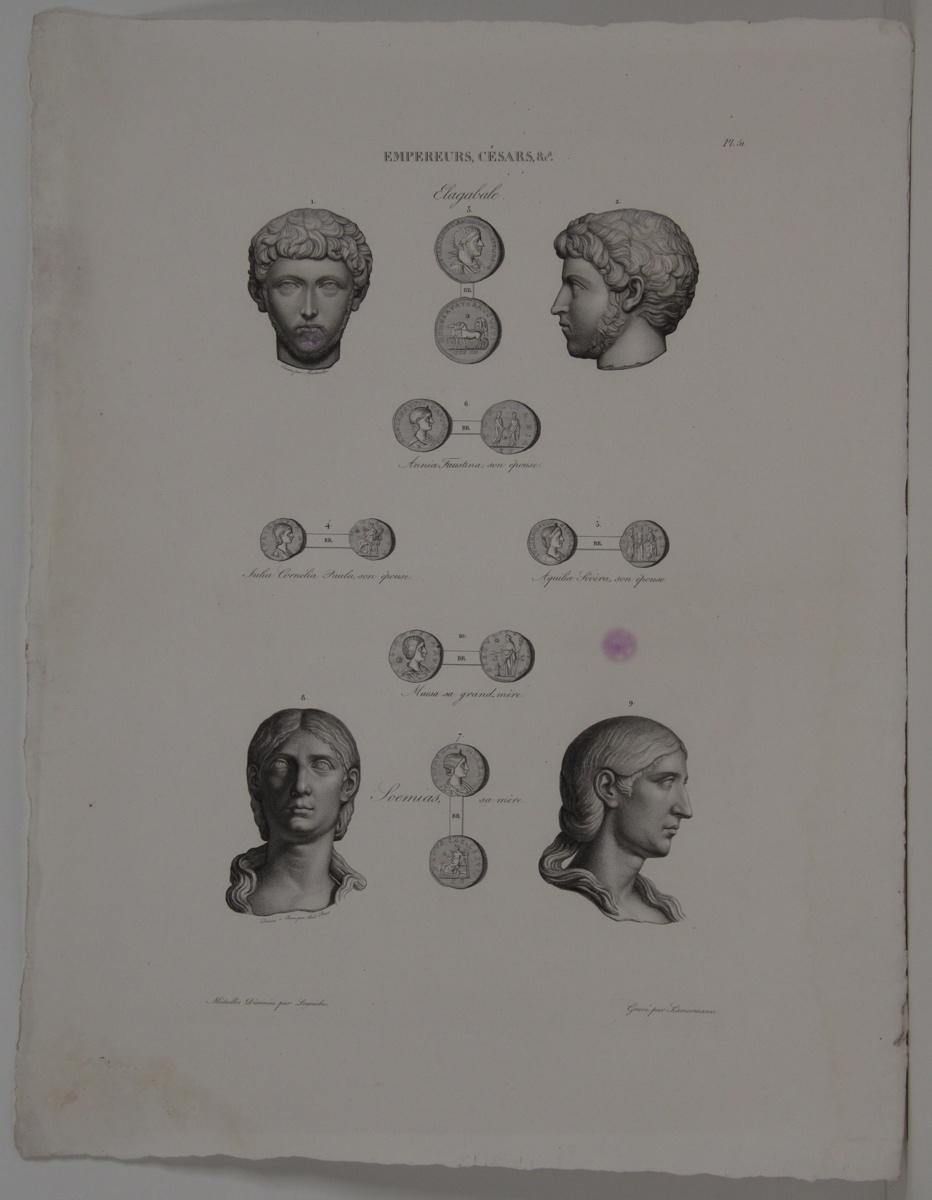
-
- Artiste(s) :
- Pierre Didot
Planches de l'iconographie romaine (pl 50) : Empereurs, Cés…
-
- Domaine(s) :
- Archéologie
- Estampe
- Numismatique
- Rome antique
-
- Sujet représenté :
- Annia Faustina
- Empereur romain
- Homme
- Héliogabale
- Monnaie
- Portrait
-
- Datation :
- XIXe siècle
-
